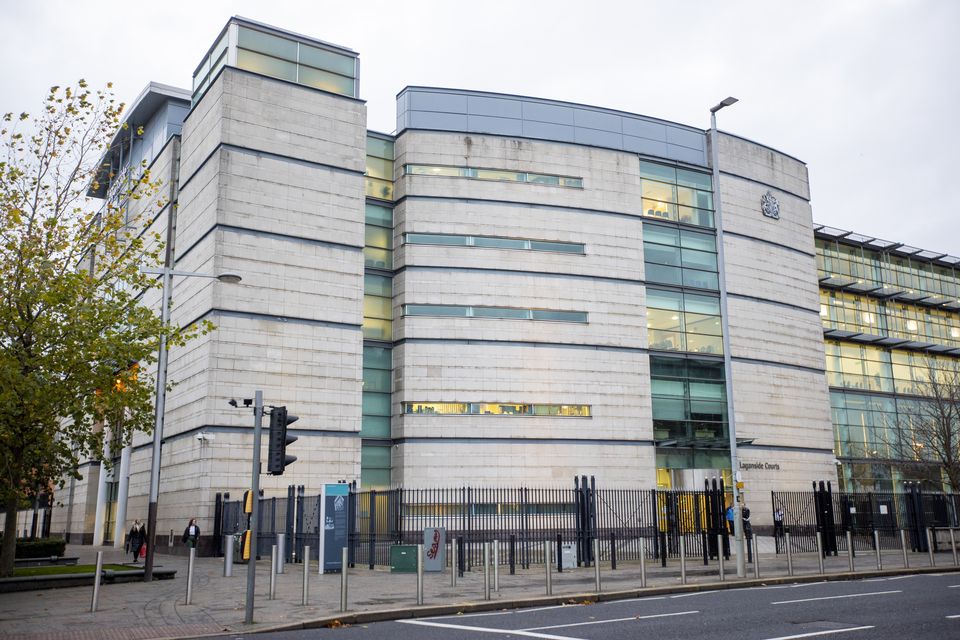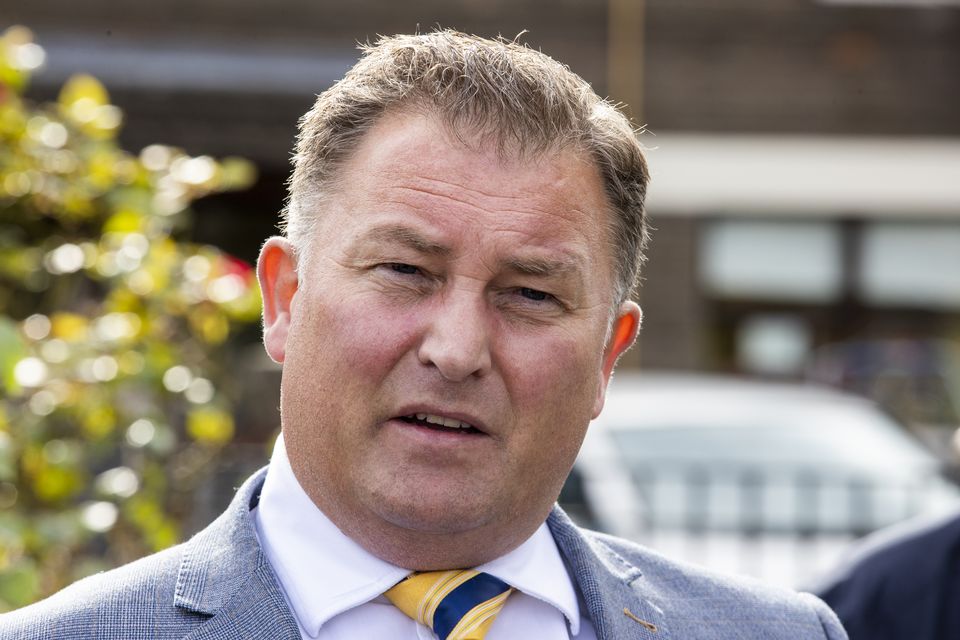The use of lethal force in the shooting of a man by the Army in Co Londonderry almost 40 years ago was justified, a coroner has found.
Judge Peter Irvine said Francis Bradley, 20, was “engaged in activities on behalf of the IRA” when he was shot by soldiers near Toomebridge on 18 February 1986.
A lawyer for the Bradley family said they are “dumbfounded” by the findings and are considering whether to challenge them through judicial review.
A fresh inquest into the death was ordered in 2010 by the then attorney general, John Larkin.
Delivering his findings in the legacy inquest at Laganside Courthouse in Belfast, Mr Irvine said the military operation was “planned and controlled in such a way as to minimise to the greatest extent possible the need for recourse to lethal force”.
The ruling was delivered at Laganside Courthouse (Liam McBurney/PA)
The court was told that Mr Bradley was described by police as being an “important member of the Provisional IRA”.
He was shot by members of the Special Military Unit, a unit within the Army, when he was in the process of removing a rifle from behind outhouses at Hillhead Road, Castledawson.
Mr Bradley was fired upon 21 times – with eight of the shots hitting him.
The coroner said he had to consider whether the use of lethal force was justified and the planning and control of the military operation.
The court was told that Mr Bradley had been shot once by a soldier referred to by the cipher Soldier A. This shot shattered his pelvis.
He was then shot at a further 20 times by Soldier C, with the final three shots proving to be fatal.
Mr Irvine said he was satisfied that when the three fatal shots were fired, Mr Bradley was “lying supine” on the ground.
He also found that at the time of the first shot being fired, Mr Bradley was not pointing his rifle in the direction of the soldiers but that “he did transfer the rifle from one hand to both hands before he was shot”.
The coroner said: “I find, individually and collectively, that in respect of the sequencing of the firing by both, that they believed there was an imminent threat not only to themselves but to lives of the other members of the patrol as posed by Francis Bradley.
“I find that the use of lethal force deployed by Soldier C when he fired the final shots was reasonable and proportionate to the threat which was present at that particular time by the deceased.
“I also find that the firing of all shots by Soldiers A and C, whether in single mode or automatic mode in the case of Soldier C, was a reasonable and proportionate response to the threat posed by Francis Bradley.
“I also find that this imminent threat was present on each individual occasion when shots were discharged.”
Mr Irvine added: “I am also satisfied that he (Bradley) was involved in some form of terrorist activity that particular evening, at the very least, in the removal of a weapon from a makeshift hide.
“I am satisfied that the initial deployment that evening was a surveillance one, and it was only when Bradley was observed at Blackpark Road, that it turned into a reactive role on behalf the military.”
The coroner said he was satisfied that the “desired intention” of the military operation had been to carry out an arrest.
He added: “In reaching my findings that Francis Bradley was engaged in activities on behalf of the IRA, the inquest has heard evidence to the effect that his name was entered into the IRA roll of honour which described him as a volunteer, County Derry.”
The coroner said that Mr Bradley had died as a result of gunshot wounds which caused lacerations of the heart, right lung, liver and intestines.
He added: “The use of lethal force was justified. Soldier C held the honest belief that it was necessary in order to prevent the loss of life.
“The use of force by the soldiers including the use of lethal force was both reasonable and proportionate.
“The operation was planned and controlled in such a way as to minimise to the greatest extent possible the need for recourse to lethal force. ”
Solicitor Ciaran Shiels said the Bradley family were disappointed at the inquest findings (Liam McBurney/PA)
Speaking outside court, Ciaran Shiels, solicitor for the Bradley family, said: “We are extremely disappointed at the findings. We are still trying to take it in.
“There is a lot of detail that we have to speak to counsel about and we have to consider whether or not to challenge these findings by way of judicial review.
“That is an option, that is something we are taking stock of. Certainly, having spoken to senior counsel the advice would be that we should be challenging these findings by way of judicial review on the grounds that they are unreasonable and irrational.
“The family are dumbfounded. Particularly in relation to the final burst of fire, in relation to the shots that were fired by Soldier C, in relation to Francis when he was on his back, looking up of no threat, he had no weapon in his hand.
“A very, very shocking finding.”

